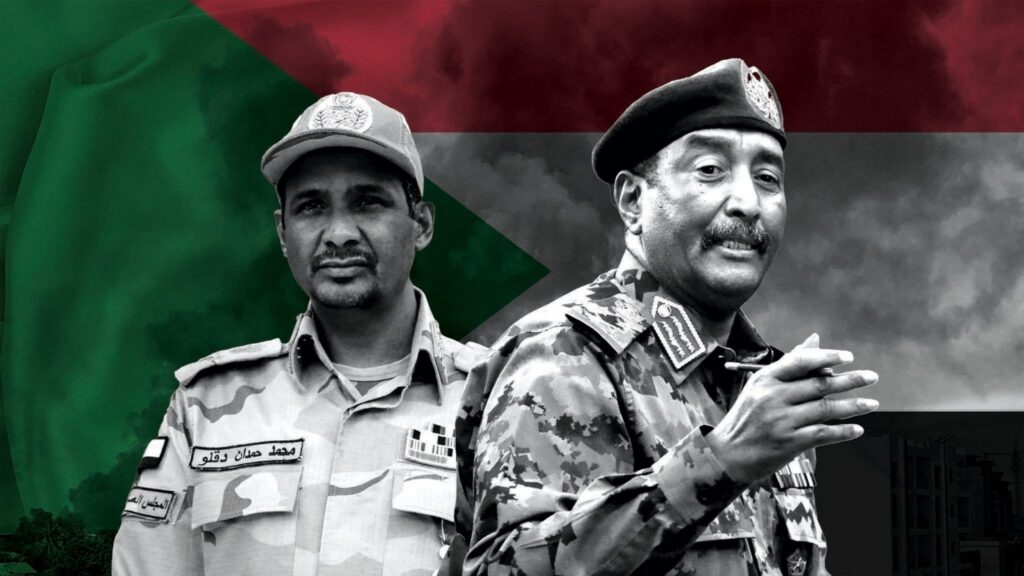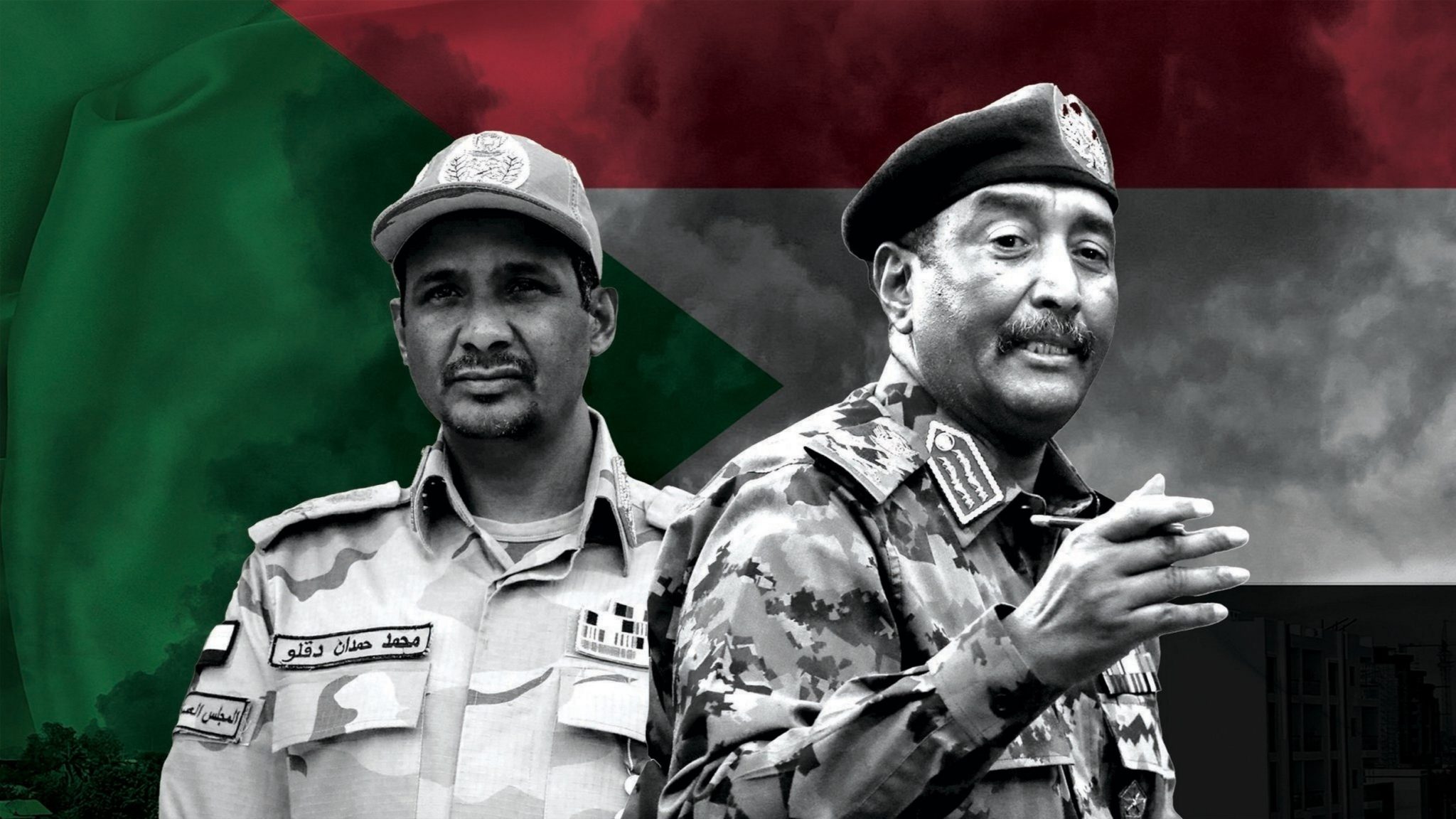Author: Chantal Elisabeth Hohe - Middle East Team
After the Gaza negotiations in 2019 and the COP27 2022 in Sharm el-Sheikh, Egypt once again positioned itself as a diplomatic force within its neighborhood. This time, to address the violent conflict that broke out in Khartoum, Sudan’s capital, this spring and ever since, plagued the country as a whole.
Egypt’s president Abdel Fattah al-Sisi hosted a neighbor’s summit in Cairo on July 13th, inviting the heads of state of all countries bordering Sudan. Namely: Libya, South Sudan, Ethiopia, Chad, the Central African Republic, and Eritrea. After more than three months of violence, it is about time the regional powers undertook a joint effort to prevent the conflict from escalating even further, right?
What has happened in Sudan recently?
After the Sudanese people’s strife for democracy had grown increasingly vocal, in 2019, the authoritarian leader Omar Al-Bashir was toppled. Al-Bashir had been in power for almost three decades, with the SAF (Sudanese Armed Forces) and RSF (Rapid Support Forces) in place to ensure his protection. Especially the RSF, a former paramilitary organization active in the Darfur region, had been essential for Al-Bashir’s safety.
After his removal from power, an interim government was installed, consisting of military and civilian parties. In 2021, this sharing of power between the two military factions and civilian actors failed. Abdel Fattah al-Burhan, chief of the SAF, and Mohamed Hamdan Dagalo (known as “Hemeti”), commander of the RSF, took to power in Khartoum. A new Prime Minister, Abdulla Hamdok, was installed, but resigned soon after, leaving al-Burhan as the de facto leader since 2022, with Hemeti in his shadow. A crucial detail, as Hemeti never liked being number two.
Ultimately, on the 15th of April, violence erupted in Khartoum — al-Burhan and Hemeti started a power struggle that ultimately led to a violent outbreak and chaos in Sudan’s capital. Since then, the conflict spread, thousands fell victim to the violence, and millions had to flee - around 700.000 to Egypt, living in inhumane conditions and without access to their basic needs such as food, water, and medical treatment.
What was decided at the Cairo Summit?
At the leaders’ summit, Egypt voiced two demands. For one, the regional powers should work towards a ceasefire between the RSF and the SAF, and ultimately initiate peace talks. And second, the warring parties should ensure safe passage for humanitarian aid convoys and facilitate access for international humanitarian workers to the country.
The Cairo Summit was the beginning of a series of ministerial talks to be held in the countries bordering Sudan in the following weeks and months, with the first round of the ‘Ministerial Mechanism’ taking place in Chad and resulting in an action plan created to work towards a ceasefire in consideration of the political sensitivity, the military risks, and the humanitarian facets of the conflict.
Let us look at what happened in Sudan, why Egypt took up the orchestrating role in diplomatic efforts, and what broader context these efforts are situated in.

Why is Egypt interested in leading diplomatic efforts?
Having a seat at the negotiating table in Sudan is not merely an act of benevolence, or an effort to end the violence for the Sudanese people’s sake. There is a lot to consider, without delving deep into the workings of Egyptian foreign and security policy. Most importantly, economy and natural resources play an essential role.
Though Egypt still is one of the strongest economies on the African continent, its power has weakened in recent years. The coronavirus pandemic, the increase in energy prices, and an uptick in food prices have taken their toll on the economy and the population. Inflation is high, and Egypt faces a currency crisis, finding itself in need of ever more uncertain international financial support.
Apart from the grim economic outlook, Egypt is in deep water stress. As it derives all of its freshwater resources from the Nile River, it has a strong interest in keeping friendly relations with the countries that sit at the river’s spring - one of them being Sudan. Of course, Egypt is keen on maintaining stability within these countries just as much. Before the spring of this year, Egypt played its part to ensure stability in Sudan by providing military support to the SAF. Now, this could backfire, as the weapons once supplied by Egypt are now used in the power struggle against the RSF, contributing to an escalation of the situation, and causing civilian deaths.
With Sudan collapsing, Egypt’s water supply could become uncertain. For instance, whoever holds the power in Sudan — itself a water-stressed country — could decide to limit the amount of water that crosses the border into Egypt, with devastating consequences for its people and its economy.
Water security and economic as well as political stability go hand in hand. Without the former, the latter will collapse, ultimately triggering a multifaceted crisis that Egypt is unlikely to shoulder, especially considering the current political and economic situation that is already destabilizing the country. Thus, positioning itself in the center of peace efforts in Sudan is likely to help Egypt prevent a domestic crisis of its own.
Where do we go from here?
With the violence continuing, and no peace deal in sight, a different approach might be needed to address the problem. A Berlin-based analyst for Foreign Policy magazine, Mahmoud Salem, has proposed an interesting take on what might help: a bottom-up approach. “Tak[ing] the side of the civilian parties“ as a balanced strategic response. This could help Egypt curb the influx of refugees that it cannot handle (neither economically nor politically). But could this also be the solution to the water struggle and the rivalry between General Burhan and General Hemeti?
It remains open to debate whether this approach is in line with Egypt’s foreign policy agenda, and if so, whether it will be accepted by Sudan’s other neighbors — and most importantly, how the warring parties should be included in this approach. For now, they were not invited to the table. And Egypt’s past with Sudan is not exactly the one of a neutral, diplomatic partner…
